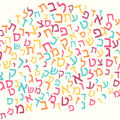 You Know More Hebrew Words Than You Think
You Know More Hebrew Words Than You Think
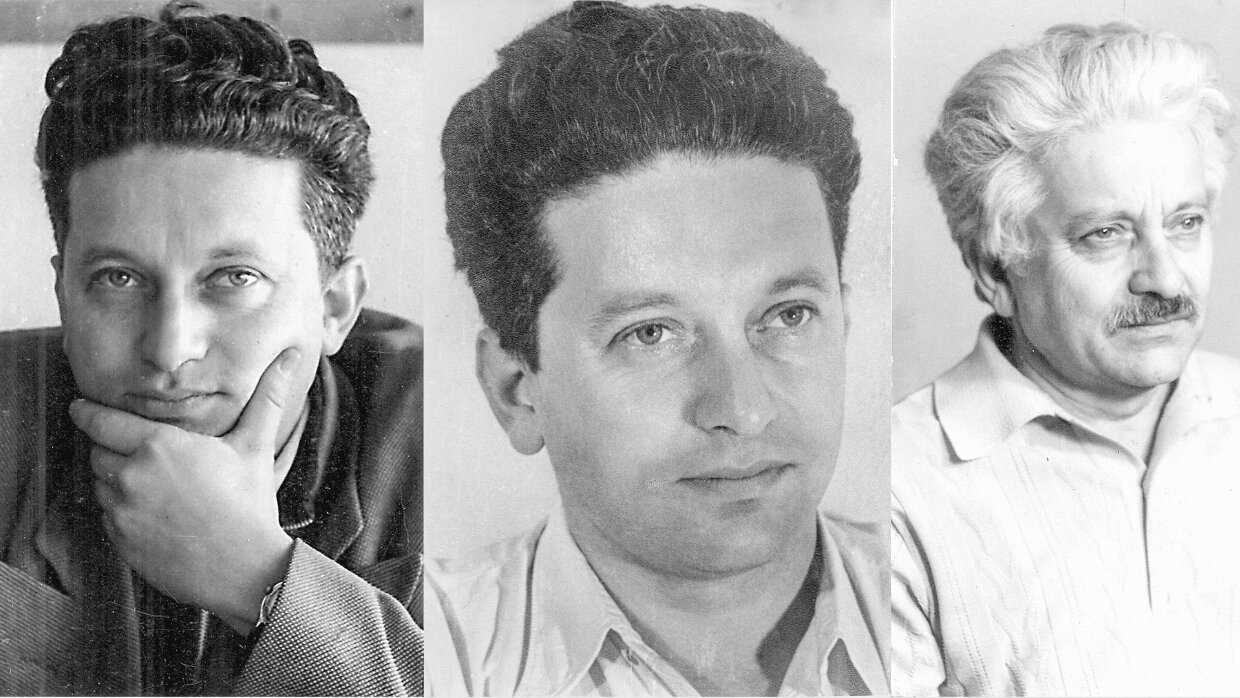

5 min read
Working for Oskar Schindler, Joseph Bau forged identities and saved hundreds of Jews. The famous artist also worked for the Mossad.
Remember the scene in Schindler’s List when the couple secretly marries in the concentration camp? That really happened to Joseph Bau and his wife, Rebecca. An artist and draftsman, Bau was a master in forging documents and worked with Oskar Schindler to save hundreds of Jews from certain death. After the war, Bau became a celebrated artist in Poland and Israel.
Born in Krakow, Poland, in 1920, Bau studied at that city’s University of Plastic Arts. In his first year, his calligraphy teacher announced an optional lesson in German Gothic letters. Despite Bau’s distaste for the German language, particularly during the war, he attended this lesson – and it ended up saving his life.
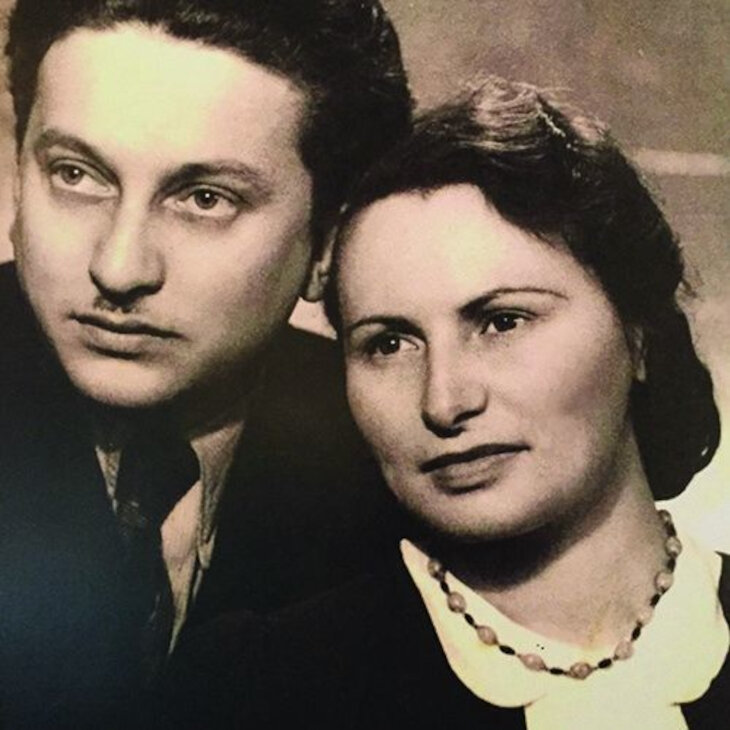 Joseph and Rebecca Bau
Joseph and Rebecca Bau
When Bau had to move with his family into the Krakow Ghetto in 1940, the German police hired him to write Gothic letters for signs and maps. At the same time, he forged documents for the Jewish underground. “The funny thing is that the Nazis were looking everywhere for spies,” recalled his daughter Clila Bau-Cohen, “and they didn’t know that the biggest spy was sitting right in their office!”
From there, the family went to the Plaszow concentration camp, where the famous secret wedding took place by the bunk of Bau’s mother, Cyla Bau, in 1944. Bau had traded his precious bread rations for a small silver spoon, which he then had fashioned into two wedding rings.
Bau called the wedding scene depicted in Spielberg’s film, where friends of the bride and groom fashion a wedding canopy out of a bedsheet held up by two brooms, “complete nonsense. Whoever heard of sheets in a camp? We slept on rags!”
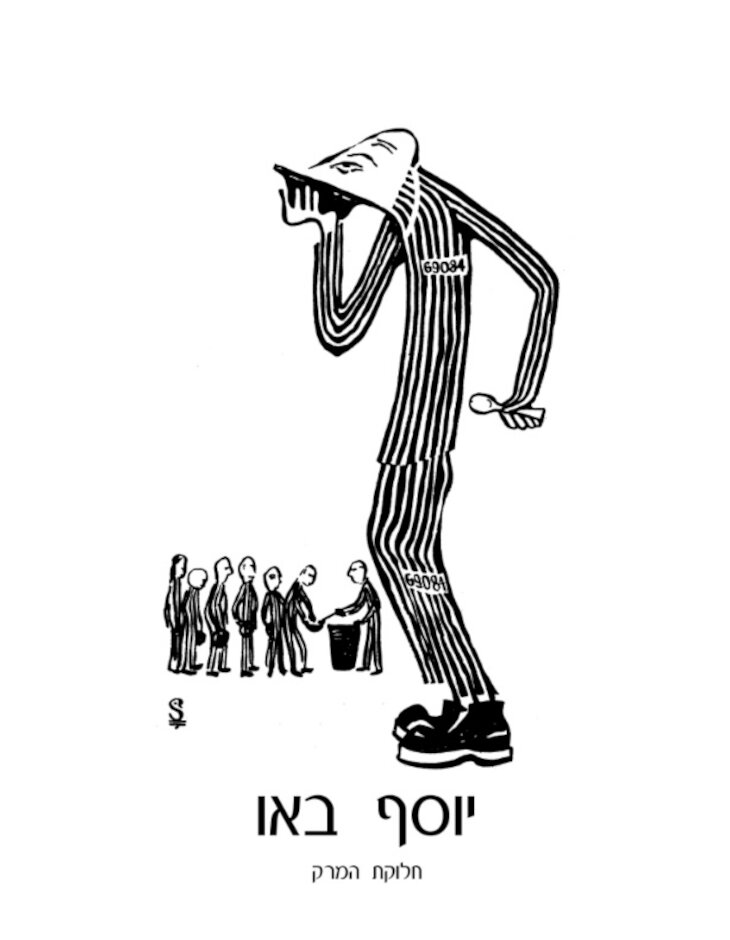 Bau’s Holocaust imagery, eating soup
Bau’s Holocaust imagery, eating soup
As manicurist to Plaszow’s monstrous commander, Amon Goeth, Rebecca found out about Schindler’s list and arranged to have her husband’s name added to it, instead of her own. Bau only found out about this selfless act of love 50 years later.
The couple then had to separate for several months, when Rebecca was sent to Auschwitz and Bau to Gross-Rosen and then Brünnlitz, the “camp” run by Oskar Schindler, in Czechoslovakia. Schindler ran an armaments factory that protected the Jews working there.
After the war, Joseph and Rebecca Bau miraculously found each other in Czechoslovakia and renewed their vows in a formal ceremony in Krakow in 1946. Sadly, both had lost almost everyone in their respective families in the Holocaust.
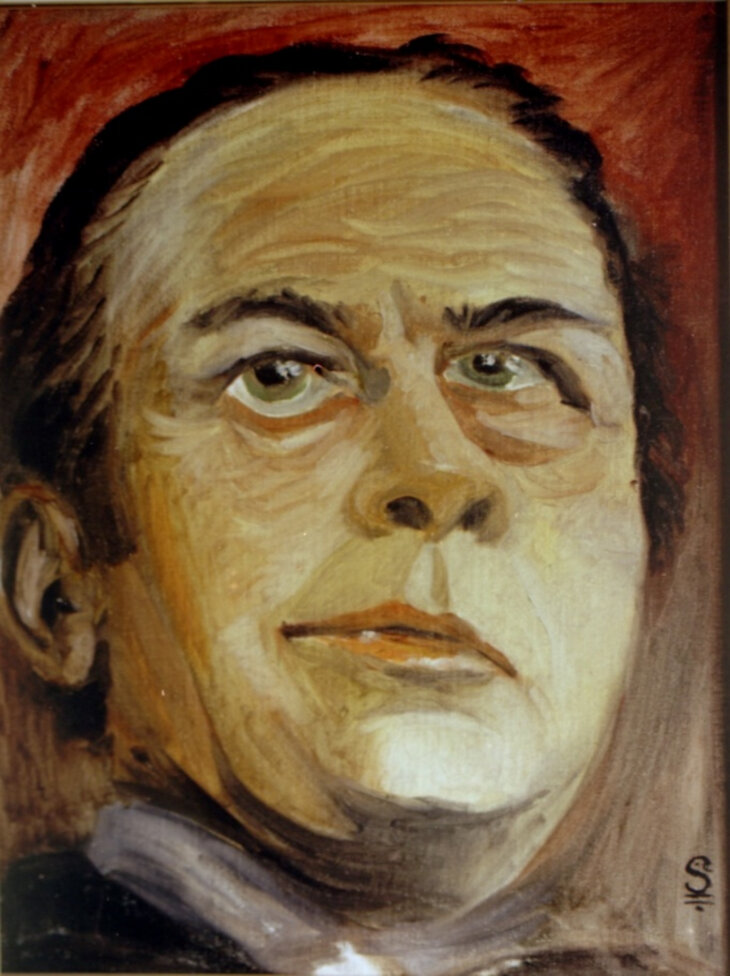 Bau’s painting of Oskar Schindler
Bau’s painting of Oskar Schindler
Bau renewed his design studies and enjoyed success as a caricaturist and cartoonist for four newspapers in Poland. In 1950, he and Rebecca moved to the newly independent State of Israel. Bau became Israel’s first animator, known in the media as the Israeli Walt Disney. He produced animated shorts for movie theatres and television, as well as public service announcements, and created the opening and closing titles and credits to nearly every Israeli film made from the 1950s to the 1970s.
Unknown to his family until after his death in 2002, Bau also worked as a graphic artist for the Mossad. He forged papers for Eli Cohen, who famously spied on Syria for Israel, as well as for the team that caught Adolph Eichmann in Argentina.
Over 25 years ago, his daughters turned their father’s Tel Aviv art studio into the Joseph Bau House Museum, where visitors can learn about the life and work of this amazing man. Even though the museum has received awards for being a major tourist attraction, the Culture Ministry wants to tear it down. Because of its small size—53 square meters, as opposed to the required 200 square meters – the Ministry will not consider the Joseph Bau House a museum, and therefore will not support it financially. The museum must rely on personal donations to survive.
One can also see Bau’s artwork in museums and galleries throughout the world, and also international venues such as the Knesset, the Spanish Parliament and the United Nations headquarters in New York.
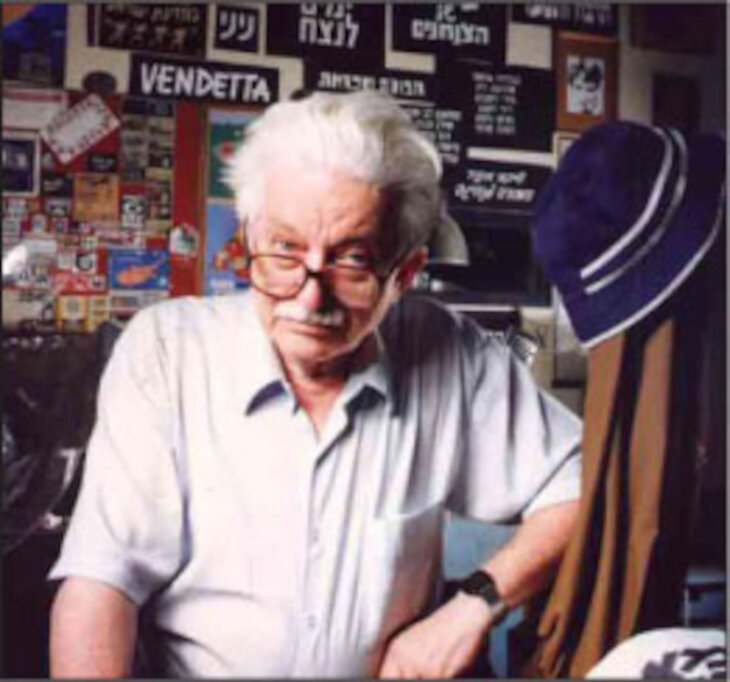 Joseph Bau
Joseph Bau
Bau authored 10 books, including his memoirs of World War II: Dear God, Have You Ever Gone Hungry? The Hebrew language version came out in 1982; the English one in 1998. The book has been translated into many other languages, as well. In it, he drew a diagram of the Plaszow concentration camp, which Steven Spielberg used to recreate the camp in Schindler’s List. Unlike most books on the Holocaust, Bau threw in some humor, which undoubtedly helped get him through those hellacious five years. “He never lost his humor. Even in the most difficult moments, he would find something funny to say,” said Clila Bau-Cohen.
He wrote a book of poetry during the Holocaust, titled The World and I. Hadasa Bau said that her father had originally made the pages from cigarette butts discarded by German soldiers. Bau also wrote a book called Brit Milah, in which he shares with the reader his fascination with the Hebrew language, mostly through amusing cartoons.
Bau doesn’t mention in any of his books that he saved the lives of so many people. When asked, years later, why he didn’t forge papers for himself, Bau humbly answered, “If I had escaped, who would have saved the others?”

But Disney was a virulant anti-semite. The analogy is a poor one.
Agreed! Amazing! Truly a hero!
Wow, amazing!
thank you very much. We are the daughters - Clila and Hadasa Bau
“If I had escaped, who would have saved the others?” I think this says it all about his character. I look forward to knowing him better through his memoir.
Thank you. I am his daughter and we sell my father's book.
You can order it from us.
josephbau@hotmail.com
Thank you
Hadasa and Clila Bau
A wonderful story to come out of such horrific times. Cannot wait to locate and read some of his books
Thank you very much.
You can order his books through us. There are two books in English: "Dear God! Have you ever gone hungry?" by Joseph Bau. Rebecca Bau wrote her diaries secretly, we found them after she passed away. They are translated to English: "In the name of God!" Joseph wrote 10 books, in Hebrew and in Polish. You can see them on the website: http://www.josephbau.com
Thank you
what an amazing man...<3
Thank you. He, our father was a fantastic father, husband and a great man. Very humble. Very creative. We invite you to cone and visit our museum in Tel Aviv - "Joseph Bau House Museum"
As an artist myself....it is with tears that I hear about you wonderful father. What a great story and hope to find his books. During the Holocaust am sure there were many artists who used their skills to 'survive' themselves and save others. Thank you all for sharing...the best to all of you.
Hi, Thank you.
You can order Joseph Bau's books from us and we will send you.
Please look at the website: http://www.josephbau.com